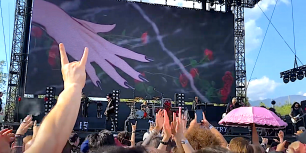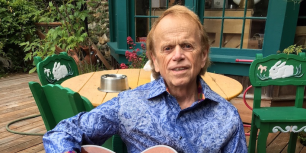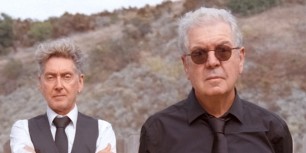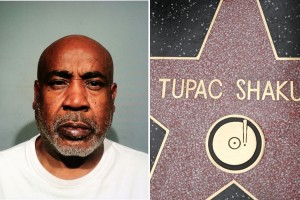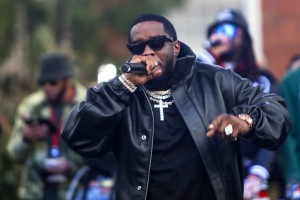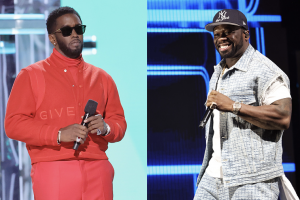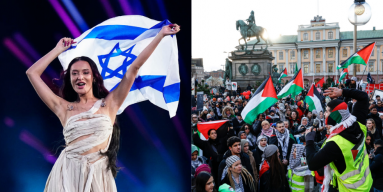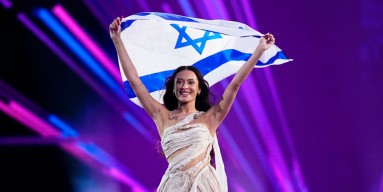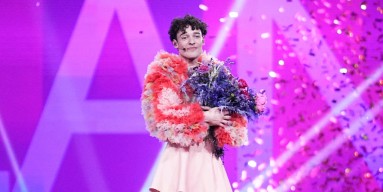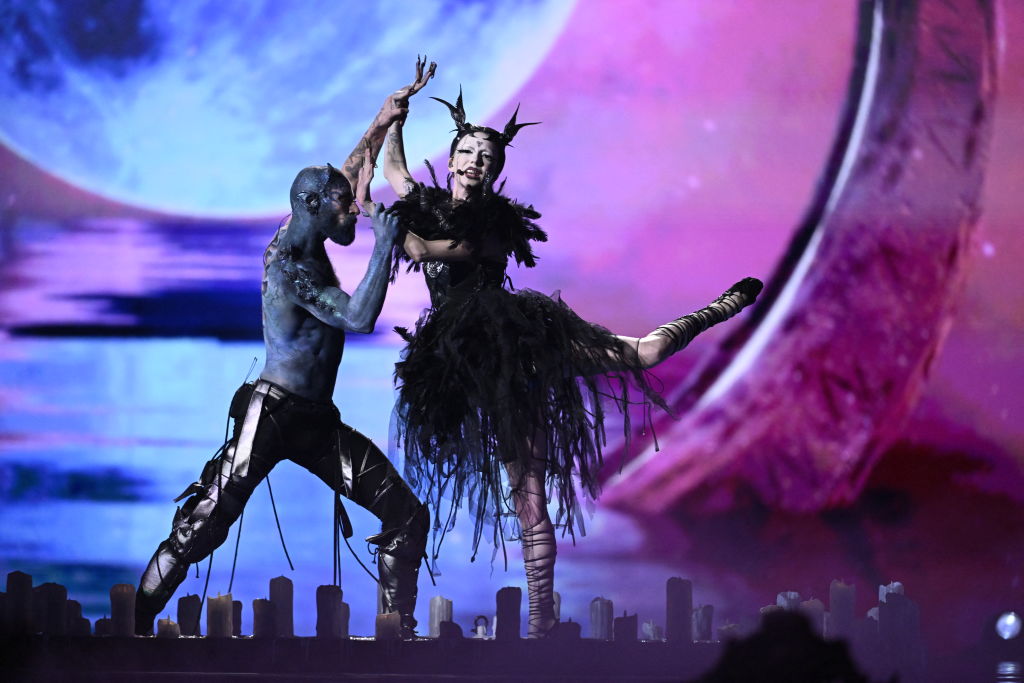
Ireland's Eurovision Song contestant Bambie Thug has spoken out about the instruction they received from the organizers to alter the pro-Palestinian message painted on their body.
The Evening Standard reported that Bambie Thug won a spot on the finale of the 2024 Eurovision Song Contest with their song "Doomsday Blue."
Speaking to reporters in Malmo, Sweden, where the 2024 Eurovision Song Contest is being held, they revealed that the Eurovision organizers forced them to change their body paint, which contained the words "ceasefire" and "freedom -- references to the Israel-Hamas war that has ravaged Gaza.
According to the 31-year-old singer, the words in their body were written in Ogham script, an early form of the Medieval alphabet.
"It was very important for me because I'm pro justice and pro peace," they said about the organizer's demands. "Unfortunately, I had to change those messages today to 'crown the witch' only (which was an) order from the EBU."
However, a European Broadcast Union (EBU) representative defended the organizers' decision to change the message.
"The writing seen on Bambie Thug's body during dress rehearsals contravened contest rules that are designed to protect the non-political nature of the event," the representative said in a statement obtained by the publication. "After discussions with the Irish delegation, they agreed to change the text for the live show."
It was reported that the EBU has imposed strict regulations that prohibit Palestinian flags and symbols in the Malmo Arena, where the grand finals of the 2024 Eurovision Song Contest will be held. The ban came after Swedish singer Eric Saade performed on the opening show wearing a keffiyeh around his wrist – a considered Palestinian symbol in support of Palestine to protest Israel's military action in the Gaza Strip.
READ MORE: Eurovision Organizers Prep for Possible Protests Over Israel's Controversial Song Lyrics
In a statement, the EBU has acknowledged the growing presence and calls for boycotts on the international competition after they ruled in favor of Israel's inclusion at this year's event.
"We understand that people will want to engage in debate and express their deeply held views on this matter. We have all been affected by the images, stories and the unquestionable pain suffered by those in Israel and in Gaza," EBU Deputy Director General Jean Philip De Tender said in a statement.
De Tender addressed the "targeted social media campaigns" against participating artists in Eurovision. He explained that the decision to include any broadcaster, including Israel's Kan, in the Eurovision Contest is the "sole responsibility" of the EBU and not the participating artist.
READ MORE: Eurovision Takes Bold Stand Against Online Attacks on Artists Over Israel's Inclusion
